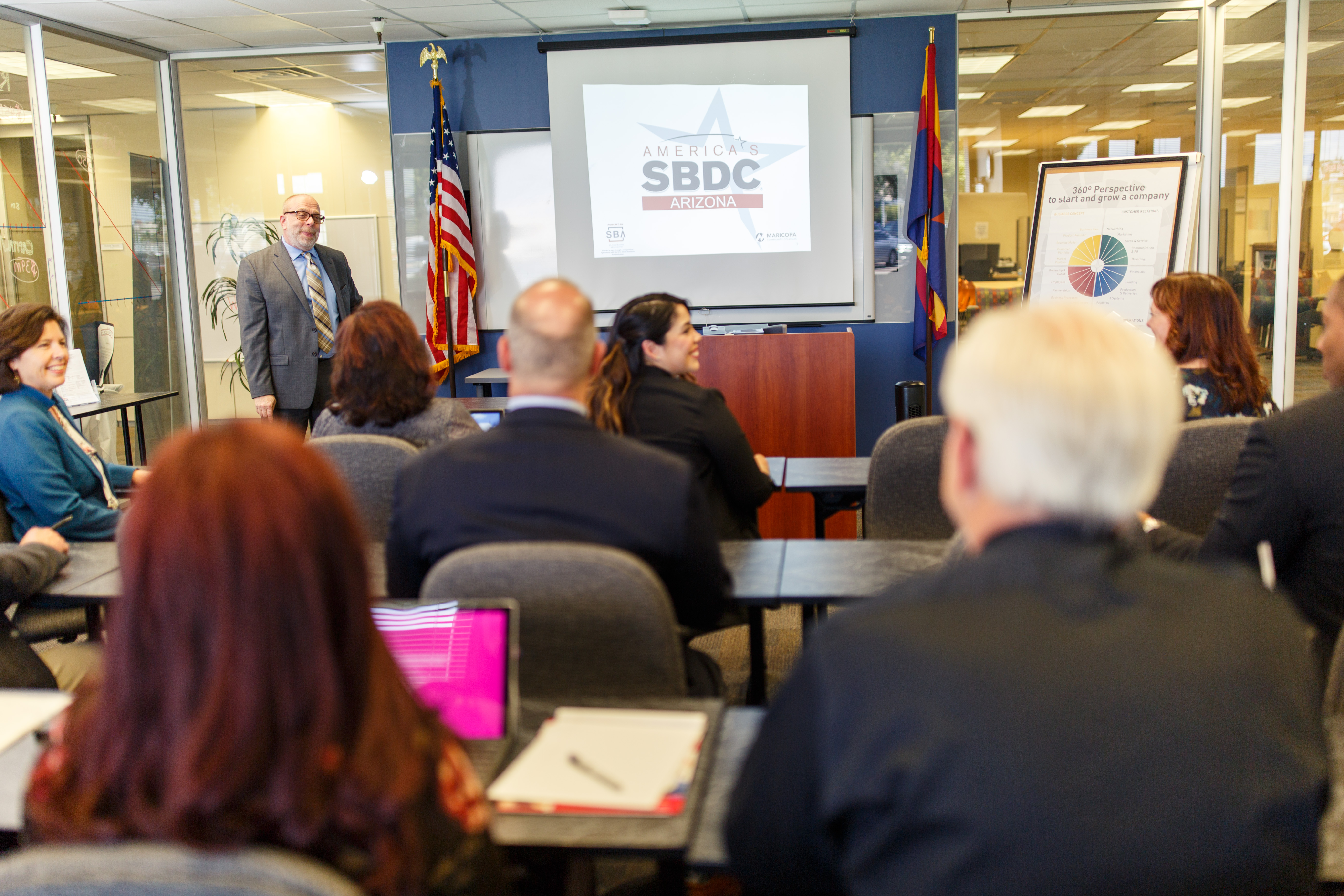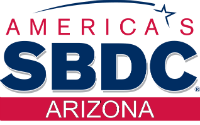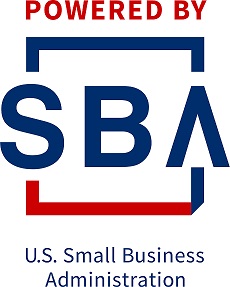September is National Preparedness Month. The Federal Emergency Management Agency say it best: Preparedness is everyone’s job. Service providers, businesses, civic and volunteer groups, industry associations and neighborhood associations, as well as every individual citizen should plan ahead for disaster. During the first few hours or days following a disaster, essential services may not be available. People must be ready to act on their own.
And it isn’t just ‘traditional’ natural hazards like floods, hurricanes, wildfires and earthquakes that businesses need to prepare for. It’s important to have plans in place to deal with accidents, acts of violence/terrorism, and technology-related hazards such as the failure or malfunction of systems, equipment or software.
As part of National Preparedness Month, the IRS is holding short (10 minutes) webinars every Friday in September to help businesses prepare for disasters and help them know what information and relief is available from the IRS in the event of a federally declared disaster. Check out the list included in the attachment and help spread the word!
IRS Tax Tools in 10… National Preparedness Month Webcasts
Disasters don’t plan ahead. You can! Give us ten minutes and we’ll share some tax tools to help you prepare for a disaster. Each Friday in September IRS will offer a short web session on preparing your business for a disaster.
September 1 – Planning for Disaster “Making Sure You’re Ready”
September 8 – Data & Records Protection
September 15 – Federal Tax Relief
September 22 – Calculating and Report Disaster Area Losses
September 29 – IRS Disaster Assistance and Emergency Relief Program
10-minute sessions are available on the dates above at the following times:
Session 1 – 9:00 am Mountain; 8:00 am Pacific; 7:00 am Alaska
Session 2 – 9:00 am Mountain; 8:00 am Pacific; 7:00 am Alaska
To register, email: SBSE.SL.Web.Conference.Team@irs.gov
Include the following information in your email:
- Name
- Email address
- Session date & time
Closed Captioning will be available. Continuing Education will not be offered.
Questions? Email us: SBSE.SL.Web.Conference.Team@irs.gov
Free IRS Webinar – Understanding S Corporations Part II – Shareholder Stock Basis & Debt Basis
September 7, 2017 (60 minutes, choice of 2 times)
https://www.irs.gov/businesses/small-businesses-self-employed/webinars-for-small-businesses-1
Overview of S Corporations, with focus on the following:
- Describing the three loss limitations for S Corporation shareholders
- Discussing the shareholder’s responsibility for tracking stock and debt basis
- Reviewing the stock basis ordering rules
- Defining when a shareholder has debt basis
- Identifying case law factors used to establish when debt is bona fide.
9 a.m. Mountain; 8 a.m. Pacific – Register & Attend: https://www.webcaster4.com/Webcast/Page/1148/21599
12 p.m. Mountain; 11 a.m. Pacific (closed captioning offered) – Register & Attend: https://www.webcaster4.com/Webcast/Page/1148/21603
Small Business Administration Workshops
SBA offers a variety of workshops, some online and others in person. Check the SBA Starting and Managing a Business for online workshops and check SBA Find Events for a list of workshops in your area.
Also check out the SBA Learning Center for a variety of free online courses, available anytime! Here is an example of one:
Financing Options for Small Businesses
This self-paced training exercise is an introduction to financing options for your business. Topics include determining your financial needs, loans, grants, venture capital, angel investors, crowd funding and other financial options available to small businesses. Duration: 30 minutes
Revised Form I-9 Now Available – Employers Must Begin Using it By Sept 18
https://www.uscis.gov/i-9-central/whats-new
USCIS released a revised version of Form I-9, Employment Eligibility Verification, on July 17. Download instructions are available on the Form I-9 page. Employers can use this revised version or continue using Form I-9 with a revision date of 11/14/16 N through Sept. 17. On Sept. 18, employers must use the revised form with a revision date of 07/17/17. Employers must continue following existing storage and retention rules for any previously completed Form I-9. See the article titled “Revised Form I-9 Now Available” under the “What’s New” link listed above.
IRS Updates & News Releases:
Did you know? One of the best ways to get information is by visiting the IRS Small Business Tax Center where you can learn everything from how to get an Employer Identification Number (EIN) online to how to best navigate an audit.
Security Summit Launches Education Campaign Aimed at Tax Pros; Warns Against Phishing Epidemic with “Don’t Take the Bait” series
The IRS is warning tax professionals to increase their computer security and to beware of their inbox – specifically the successful email scams dubbed spear phishing that identify themselves as a friend, customer or company. As part of the Security Summit effort, the IRS, state tax agencies and the tax industry next week will kick off another series in theProtect Your Clients, Protect Yourself campaign called “Don’t Take the Bait.” It’s critical that tax professionals remember they have not just an obligation but a legal requirement under federal law to protect taxpayer information.
Don’t Take the Bait, Step 4: Defend against Ransomware
https://www.irs.gov/uac/newsroom/dont-take-the-bait-step-4-defend-against-ransomware
The IRS, state tax agencies and the tax industry today warned tax professionals that ransomware attacks are on the rise worldwide as bad actors here and abroad infiltrate computer systems and hold sensitive data hostage. The IRS is aware of a handful of tax practitioners who have been victimized by ransomware attacks. The Federal Bureau of Investigation recently cautioned that ransomware attacks are a growing and evolving crime threatening the private and public sectors as well as individuals.
Ransomware is a type of malware that infects computers, networks and servers and encrypts (locks) data. Cybercriminals then demand a ransom to release the data. Users generally are unaware that malware has infected their systems until they receive the ransom request.
Don’t Take the Bait, Step 5: Prevent Remote Access Takeover Attacks
https://www.irs.gov/uac/newsroom/dont-take-the-bait-step-5-prevent-remote-access-takeover-attacks
The Internal Revenue Service, state tax agencies and the tax industry today reminded tax professionals that their entire digital network could be at risk for remote takeover by cybercriminals. Such a takeover could lead to fraudulent tax filings and damage to their clients. Multiple incidents have been reported to the IRS in the past year as tax professionals’ systems have been secretly infiltrated. The criminals accessed client tax returns, completed those returns, e-filed them and secretly directed refunds to their own accounts. A remote attack targets an individual computer or network as the cybercriminal exploits weaknesses in security settings to access the devices. Another line of attack uses malware to download malicious code that gives the criminals access to the network. Especially vulnerable are wireless networks, including mobile phones, modems and router devices, printers, fax machines and televisions that retain their factory-issued password settings. Sometimes, these devices have no protection at all.
See the full article for steps tax professionals can take to help protect themselves from remote takeovers.
Don’t Take the Bait, Step 6: Watch Out for the W-2 Email Scam
https://www.irs.gov/uac/newsroom/dont-take-the-bait-step-6-watch-out-for-the-w-2-email-scam
The IRS, state tax agencies and the tax industry today urged tax professionals and businesses to beware of a recent increase in email scams targeting employee Forms W-2. The W-2 scam – called a business email compromise or BEC – is one of the most dangerous phishing email schemes trending nationwide from a tax administration perspective. The IRS saw a sharp increase in the number of incidents and victims during the 2017 filing season. A business email compromise occurs when a cybercriminal “spoofs” or impersonates a company or organization executive’s email address and target a payroll, financial or human resources employee with a request. For example, fraudsters will try to trick an employee to transfer funds into a specified account or request a list of all employees and their Forms W-2.
If the business or organization victimized by these attacks notifies the IRS, the IRS can take steps to help prevent employees from being victims of tax-related identity theft. However, because of the nature of these scams, many businesses and organizations did not realize for days, weeks or months that they had been scammed. The IRS has established a special email notification address specifically for businesses and organizations to report W-2 thefts – see the full article for how to report an incident to the IRS and file a complaint with the FBI.
Don’t Take the Bait, Step 7: Protect e-Services Accounts, EFINs
https://www.irs.gov/uac/newsroom/don-t-take-the-bait-step-7-protect-e-services-accounts-efins
The IRS, state tax agencies and the tax industry remind tax professionals that they are responsible for protecting access to their IRS e-Services account and safeguarding their Electronic Filing Identification Number (EFIN) from thieves. National and international criminal syndicates routinely attempt to steal tax professionals’ usernames and passwords so they may access IRS e-Services to obtain the EFIN, which allows a criminal to steal clients’ sensitive information.
Security Summit Alert: Tax Pros Warned of New Scam to Steal Their Passwords
The Internal Revenue Service, state tax agencies and the tax industry today warned tax professionals to be alert to a new phishing email scam impersonating tax software providers and attempting to steal usernames and passwords.
This sophisticated scam yet again displays cybercriminals’ tax savvy and underscores the need for tax professionals to take strong security measures to protect their clients and protect their business. This is the time of year when many software providers issue software upgrades and when tax professionals are working to meet the Oct. 15 deadline for extension filers.
These types of phishing scams are why the IRS, state tax agencies and the tax industry, acting as the Security Summit, launched the 10-week Don’t Take the Bait campaign currently underway. This awareness effort highlights the many tactics of cybercriminals as well as the steps tax professionals can take to protect their clients and themselves.
This latest scam email variation comes with a subject line of “Software Support Update” and highlights an “Important Software System Upgrade.” It thanks recipients for continuing to trust the software provider to serve their tax preparation needs and mimics the software providers’ email templates.
The Security Summit reminds tax professionals that software providers do not embed links into emails asking them to validate passwords. Also, tax professionals and taxpayers should never open a link or an attachment from a suspicious email. Tax professionals can review additional tips to protect clients and themselves at Protect Your Clients, Protect Yourself on IRS.gov.
IRS Begins Issuing Notices to Taxpayers whose ITINs Expire by End of 2017
The Internal Revenue Service began mailing letters this month to more than 1 million taxpayers with expiring Individual Taxpayer Identification Numbers and urges recipients to renew them as quickly as possible to avoid tax refund and processing delays. ITINs with middle digits 70, 71, 72 or 80 are set to expire at the end of 2017. The notice being mailed — CP-48 Notices, You must renew your Individual Taxpayer Identification Number (ITIN) to file your U.S. tax return — explains the steps taxpayers need to take to renew the ITIN if it will be included on a U.S. tax return filed in 2018. The notices will be issued over a five-week period beginning in early August. Taxpayers who receive the notice but have acted to renew their ITIN do not need to take further steps unless another family member is affected.
IRS YouTube Videos:
Individual Taxpayer Identification Number – English | Spanish
IRS Reminds Truckers: For Most, Highway Use Tax Return Is Due Aug. 31; E-file Is a Convenient Filing Option
The Internal Revenue Service today reminded truckers and other owners of heavy highway vehicles that, in most cases, their next federal highway use tax return is due Thursday, Aug. 31, 2017. The deadline generally applies to Form 2290 and the accompanying tax payment for the tax year that begins July 1, 2017, and ends June 30, 2018. Returns must be filed and tax payments made by Aug. 31 for vehicles used on the road during July. For vehicles first used after July, the deadline is the last day of the month following the month of first use. Though some taxpayers have the option of filing Form 2290 on paper, the IRS encourages all taxpayers to take advantage of the speed and convenience of filing this form electronically and paying any tax due electronically. Taxpayers reporting 25 or more taxed vehicles must e-file. Tax-suspended vehicles don’t count toward the 25-or-more taxed vehicle threshold. Visit IRS.gov for a list of IRS-approved e-file providers.
Tax Tips
https://www.irs.gov/uac/irs-tax-tips
Starting a Business This Summer? Here’s Four Tax Tips
Be Alert to Scammers Who Pose as the IRS
IRS Offers Self-Help Tax Tools
Eight Tips to Protect Taxpayers from Identity Theft
How Does the IRS Contact Taxpayers?




